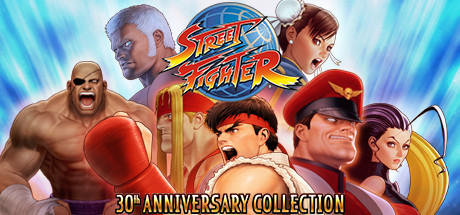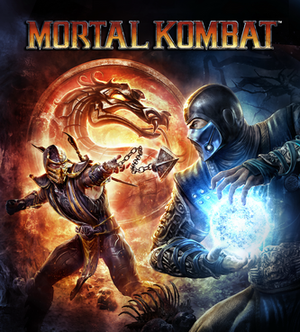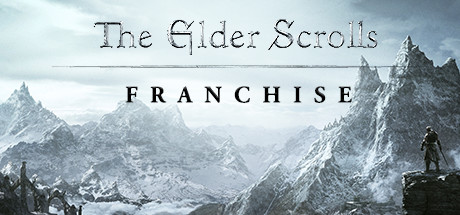Unit 1, Task 2 - Primary and Secondary research - democratization in video games.
- Cade-Mason
- Apr 29, 2021
- 4 min read
Updated: May 13, 2021
In this task, I use 2 research techniques to form a report. The main subject here is video games and the report topic is about democratization in video games. Democratization - definition
The process of using democratic ways to make decisions and choices lead by organizations, government and companies. (Cambridge Dictionary)
It can also mean the accessibility of information through technology to vast amounts of people rather than the select few people. (i.e game developers" The process is political and mundane. Art is a great example of the democratization of expression. Anyone can produce it; anyone can consume it.
Video game development:
Video game development has been branched out into the following sectors for game companies:
Triple AAA companies
These companies have the biggest budgets, employee capacity and consists of studio professionals, veterans, and new game developers
Indie game companies
Indie = independent. They can work independently or work with a small team
In-game developments, game developers can switch to engines prior to the development of the game. However, the transition when switching game engines it can be hard and infuriating. In the Jason's Schreir's book - Blood, Sweat, and Pixels: The Triumphant, Turbulent Stories Behind How Video Games Are Made. Mark Darrah made the switch from their game engine, Eclipse to Frostbite. According to Mark Darrah, “Frostbite’s a hard engine to make progress with if your team is too small. It takes a certain number of people to just keep on it.” the reason why he states that this was a hard engine to use is that "Frostbite doesn't really understand the idea of stats or items or saving a game, conversations, cutscenes. Like a bunch of things that we take for granted, it doesn't even really conceptualize. We actually had a project code named Blackfoot which was the first game we had that was looking at Frostbite. That became the core of what became Dragon Age Inquisition, the techlines, more than any of the development, so we've actually been looking at this a long time,". Switching to game engines in a game's development is no small feat.

Unity is a game software that is meant "to democratize game development." For my game the game engine I am going to use is Unity. I have been using Unity for a while now and it's free software anyone can use. Unity is software is a prime example of democratization in games. Anyone can make a game and anyone can play the game that you have made. You also have video games where you, the consumer can make a video game whilst playing the game. Games such as Super Mario Maker, Dreams, and LittleBigPlanet. These games help spark creativity and this allows the players to flair their creativity when creating game levels. Its games like these are the gateway to creating their own video games. Even if it's small passion projects of the sort.
In short, anyone can make a game and the consumers consume any game they play. It's a matter of finding the right tools and software to make the game you've desired. Alongside the creativity and fundamentals of game design and pipelines of development. Knowing that there is free software to use out there benefits the game developers. Therefore, a game engine like Unity benefits both the players and the creator. It is about teaching yourself or others about knowing "knowing how things work (technical and economic knowledge); how things feel and fit (emotional and embodied knowledge); and how to make a difference (creative and political knowledge)." (Jones and Gauntlett, 2014)
The most popular video game genres
According to Straits Research, these are the top 10 most popular gaming genres:
Action
Sports
Adventure
Battle Royale
Role-Playing Games
Racing
Fighting games
Real-Time Strategy
Simulation games
First Person Shooter
These genres are in the top 10 for their own good and respective reasons however, let's talk about the "action" genre here.
The action genre is by far the most challenging, fun, immersive, and universal game genre out there. You have games that range from platformers to action role-playing games to beat 'em ups. The action genre covers a lot of things and can be entertaining in its own way regarding each genre it covers.
Fighting games are about the beat 'em ups playing as your favorite characters creating and performing combos and fighting against other characters. Most popular fighting games: Street Fighter, Mortal Kombat, and Tekken.
The action in platformer games is moving around, jumping, crouching, and climbing your way through the game's level. There can be some interesting or unique mechanics in video games that have been done throughout the years video games have had to offer. Most popular platformer games: Mario, Sonic, and Crash Bandicoot.
In action RPGs, you have this sense of freedom in which you can move around and fight enemies and bosses however you want to. You are dictating your actions and choices based on what you do throughout the game. Most popular action RPGs: Dark Souls, Kingdom Hearts, Witcher, Elder Scrolls, and Monster Hunter.
Having said all this, the action genre is the key genre to my video game - Tower of Hell.
https://straitsresearch.com/blog/top-10-most-popular-gaming-genres-in-2020/
Primary research solutions:
To conduct the secondary research, I will create a survey and send the survey out to classmates, teachers, and industry professionals in the games industry.
The survey will be questionnaire-based.
When the research is done, I will address these findings in my other tasks to show evidence of what has been found. Tasks 3-4 are where I'll address the findings.
Conducting your own interview = primary
Secondary research solutions:
- references and citations (referring to a person's quote.)
- interviews with industry professionals (via LinkedIn or email)
- quantitative research (surveys, focus groups)
Drawing into other people's research (interview, book, news etc.)
Task 4 blog link: https://cade-mason.wixsite.com/website-1/post/task-4-unit-1-research-findings-and-product-ideas
Bibliography:
Jones, S. and Gauntlett, D., 2014. Making Media Studies. 1st ed. New York: Peter Lang Inc., International Academic Publishers, p.Page number: 130.



















Comments